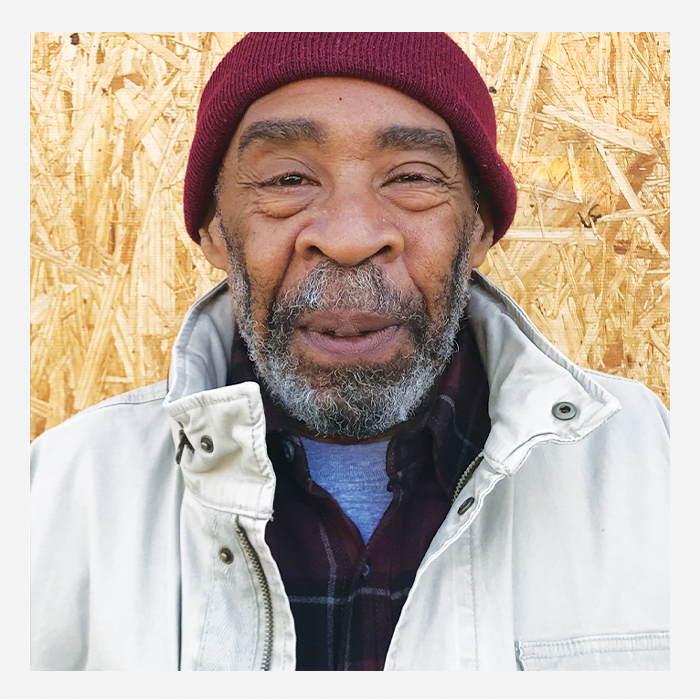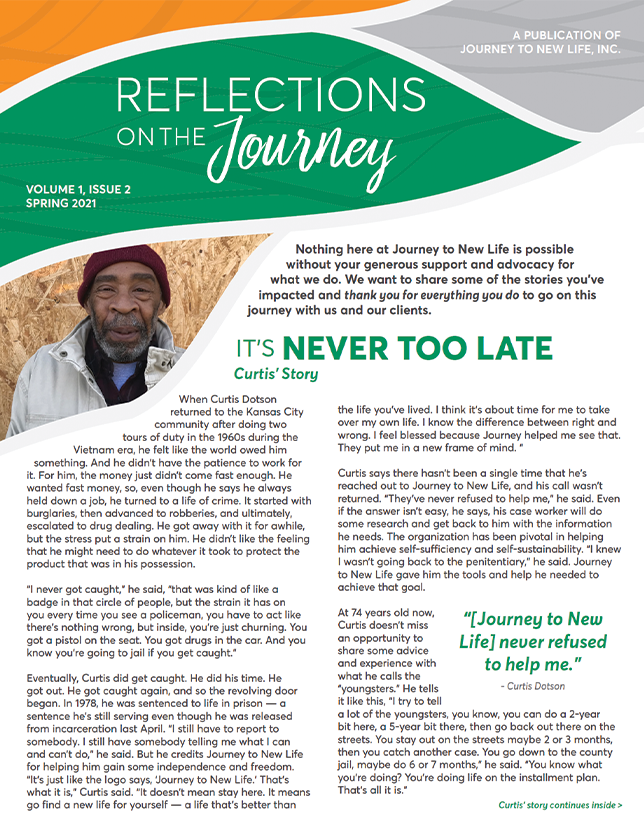
 When Curtis Dotson returned to the Kansas City community after doing two tours of duty in the 1960s during the Vietnam era, he felt like the world owed him something. And he didn’t have the patience to work for it. For him, the money just didn’t come fast enough. He wanted fast money, so, even though he says he always held down a job, he turned to a life of crime. It started with burglaries, then advanced to robberies, and ultimately, escalated to drug dealing. He got away with it for awhile, but the stress put a strain on him. He didn’t like the feeling that he might need to do whatever it took to protect the product that was in his possession.
When Curtis Dotson returned to the Kansas City community after doing two tours of duty in the 1960s during the Vietnam era, he felt like the world owed him something. And he didn’t have the patience to work for it. For him, the money just didn’t come fast enough. He wanted fast money, so, even though he says he always held down a job, he turned to a life of crime. It started with burglaries, then advanced to robberies, and ultimately, escalated to drug dealing. He got away with it for awhile, but the stress put a strain on him. He didn’t like the feeling that he might need to do whatever it took to protect the product that was in his possession.
“I never got caught,” he said, “that was kind of like a badge in that circle of people, but the strain it has on you every time you see a policeman, you have to act like there’s nothing wrong, but inside, you’re just churning. You got a pistol on the seat. You got drugs in the car. And you know you’re going to jail if you get caught.”
Eventually, Curtis did get caught. He did his time. He got out. He got caught again, and so the revolving door began. In 1978, he was sentenced to life in prison — a sentence he’s still serving even though he was released from incarceration last April. “I still have to report to somebody. I still have somebody telling me what I can and can’t do,” he said. But he credits Journey to New Life for helping him gain some independence and freedom. “It’s just like the logo says, ‘Journey to New Life.’ That’s what it is,” Curtis said. “It doesn’t mean stay here. It means go find a new life for yourself — a life that’s better than the life you’ve lived. I think it’s about time for me to take over my own life. I know the difference between right and wrong. I feel blessed because Journey helped me see that. They put me in a new frame of mind. “
It’s just like the logo says, ‘Journey to New Life.’ It doesn’t mean stay here. It means go find a new life for yourself — a life that’s better than the life you’ve lived.
— Curtis Dotson
Curtis says there hasn’t been a single time that he’s reached out to Journey to New Life, and his call wasn’t returned. “They’ve never refused to help me,” he said. Even if the answer isn’t easy, he says, his case worker will do some research and get back to him with the information he needs. The organization has been pivotal in helping him achieve self-sufficiency and self-sustainability. “I knew I wasn’t going back to the penitentiary,” he said. Journey to New Life gave him the tools and help he needed to achieve that goal.
At 74 years old now, Curtis doesn’t miss an opportunity to share some advice and experience with what he calls the “youngsters.” He tells it like this, “I try to tell a lot of the youngsters, you know, you can do a 2-year bit here, a 5-year bit there, then go back out there on the streets. You stay out on the streets maybe 2 or 3 months, then you catch another case. You go down to the county jail, maybe do 6 or 7 months,” he said. “You know what you’re doing? You’re doing life on the installment plan. That’s all it is.”
Today, after several decades of being incarcerated, Curtis is reunited with his parents, his siblings and his four children. He says he calls his mom every day, and his children each call him at least once a week. He can’t change the past, but he’s happy to be in their lives and happy to have them in his. He gets particularly excited when one of his children calls and tells him to put his shoes on. “I know I have a breakfast coming then,” he said.

